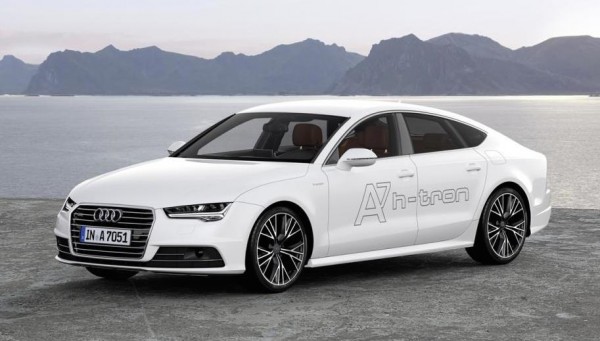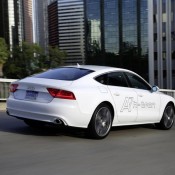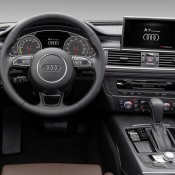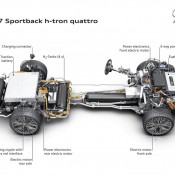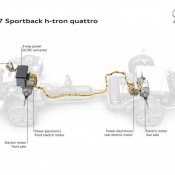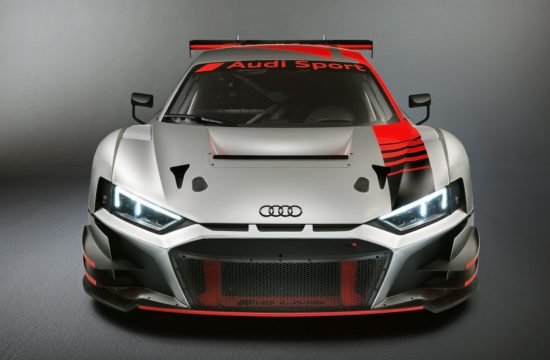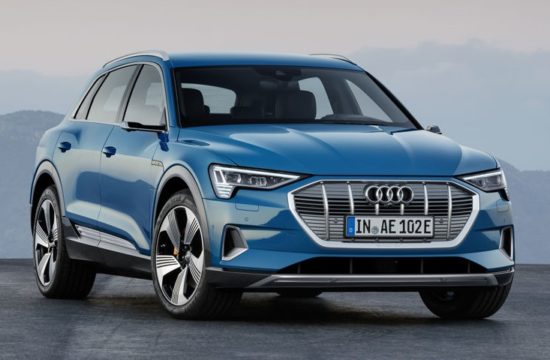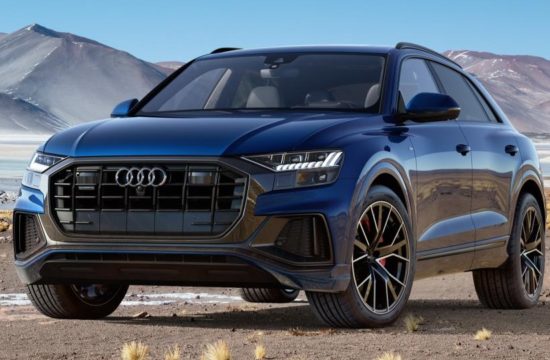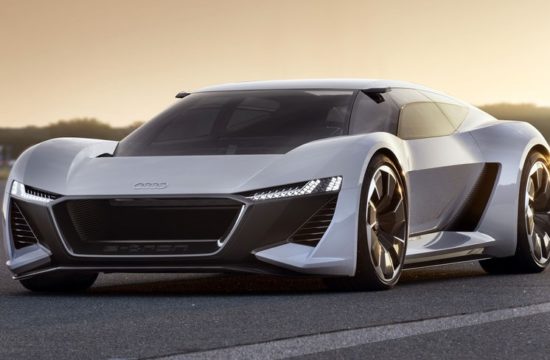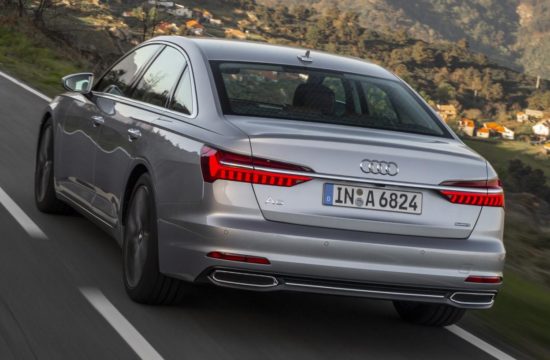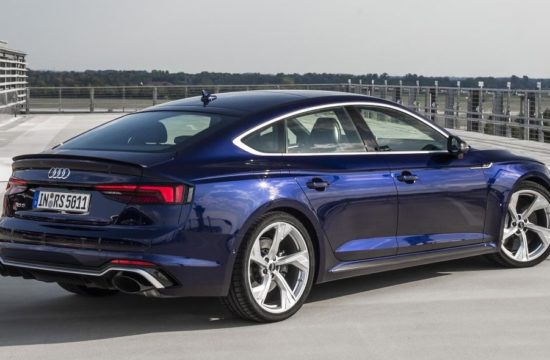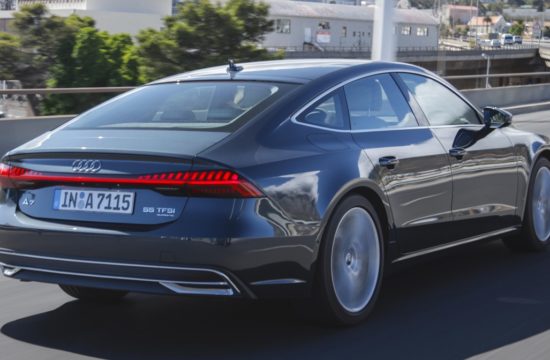Looks like hydrogen fuel cell cars will be here sooner than expected. Another big automaker is now committed to this new technology and they’ve come up with a new concept to prove it. Meet the Audi A7 h-tron.
This super green version of the A7 Sportback is powered by hydrogen, which to be honest causes as many problems as it solves. The fuel cell system, for those of you who don’t know, uses hydrogen stored in special tanks to generate electricity by mixing it with oxygen in the ‘cell’. That electricity is then used to power the vehicle. The only waste product here is hydrogen mixed with oxygen – H2O, or water.
That’s the good thing about HFCV. The downside is the almost complete lack of any infrastructure for hydrogen distribution. That is the biggest hurdle in the way of hydrogen cars, otherwise they would have killed plug-in EVs three time over by now.
The Audi A7 h-tron is one of the most sophisticated FCVs to date, boasting 170 kilowatts of power. It also features a number of ‘firsts’ such as a turbocharger that forces the air into the cells, a recirculation fan, and coolant pump. Audi has also fitted a plug-in feature to let you charge up the batteries with a plug in case you couldn’t find a hydrogen pump nearby.
Performance-wise, Audi A7 h-tron can from a standstill to 100 km/h in 7.9 seconds and reach 180 km/h. Total range is about 500 km, about 50 of which can be done solely on electric power of the batteries. The h-tron, and all hydrogen fuel cell cars for that matter, still have a long way to go before they become a viable alternative to the plug-ins. But the future looks quite bright.

